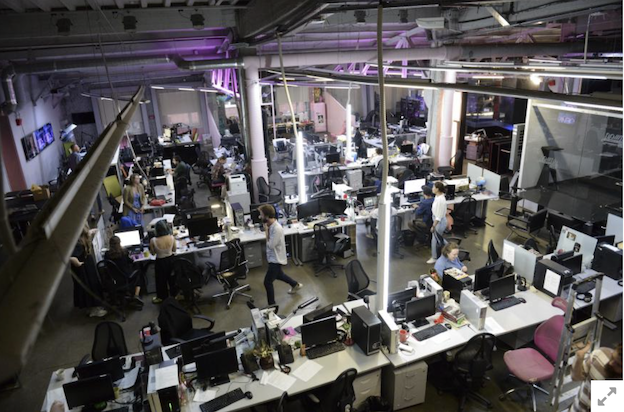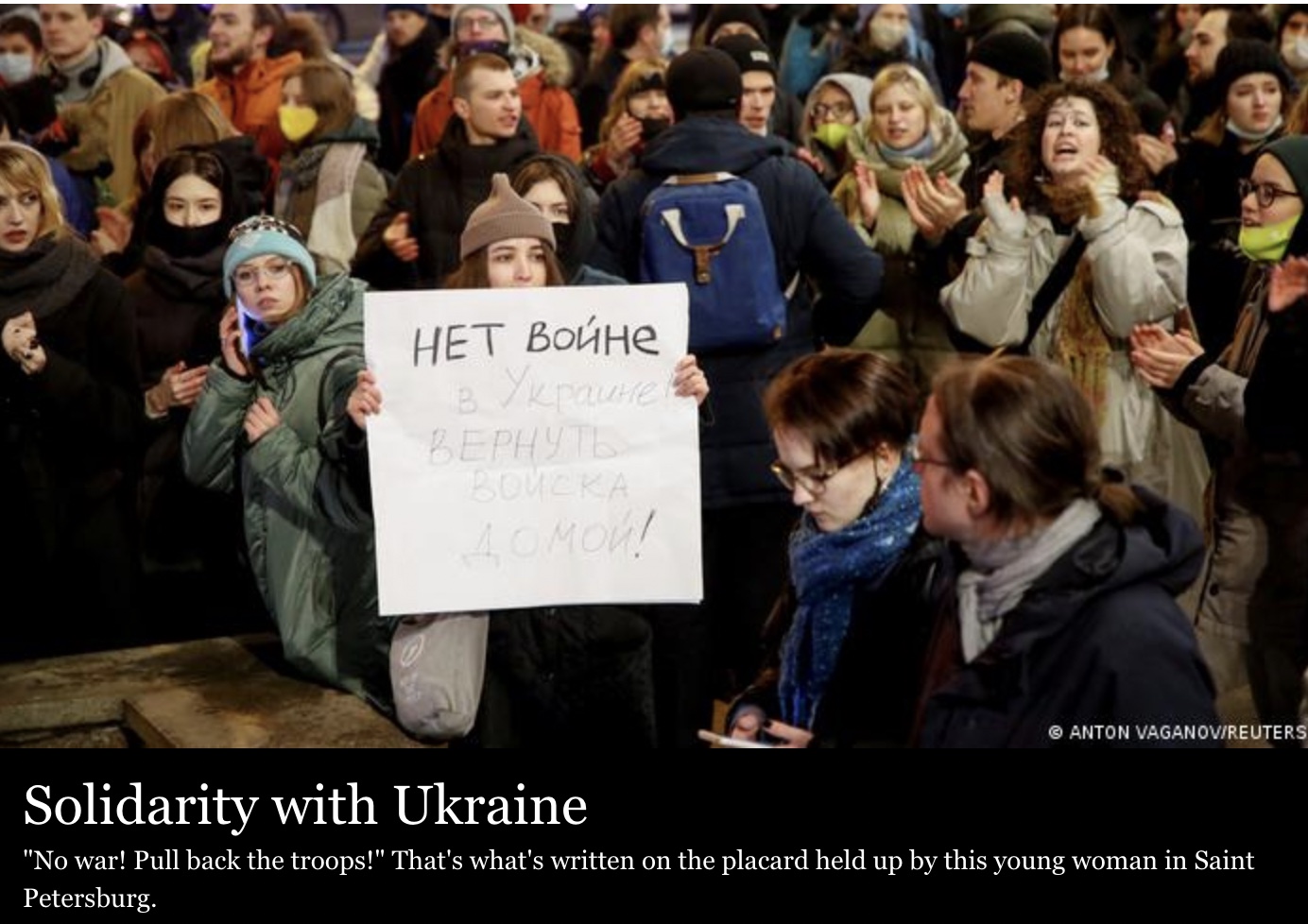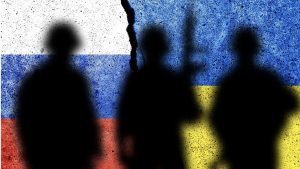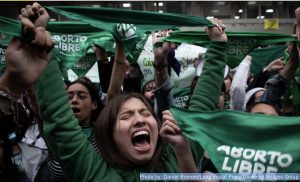FREE FLOW OF INFORMATION
An article from TrV-science (Trojan variant – Science (translation by CPNN) (article later removed by Russian government censorship)
28.02.2022: The editors of the Trojan Variant have received an open letter from mathematicians working in Russia. The letter is open for signing (signatures are collected here). We publish the text of the appeal to the head of the Russian Federation.

To the President of the Russian Federation V. V. Putin
Mr. President!
We, mathematicians working in the Russian Federation, strongly protest against the military invasion of the territory of Ukraine launched by the Russian army on February 24, 2022.
The standard of living in a country and its position in the world are largely determined by the level of its science. Scientists all over the world are working on problems that are not restricted to national and territorial interests, but concern the well-being of all mankind. International cooperation, lack of borders for the dissemination of knowledge and humanistic values are the foundation on which science is built. Our many years of efforts to strengthen the reputation of Russia as a leading mathematical center have been completely depreciated as a result of the unprovoked military aggression initiated by our country.
Mathematics has always been one of the few areas of fundamental science in which Russia has maintained a leading world position. As confirmation of this, Russia was supposed to host the most prestigious mathematical conference in the world, the International Congress of Mathematicians, in the summer of 2022. The International Mathematical Union canceled this decision in connection with the Russian attack on Ukraine. In a situation where our country has become a military aggressor and, as a result, a rogue state, Russia’s leading positions in world mathematics will be irretrievably lost.
In the instructions of the President of December 4, 2020, mathematics was named a priority area for the development of the Russian Federation; goals were set both in the field of fundamental science and in education. These goals, of course, cannot be achieved in the current conditions, when the lives of our closest colleagues – scientists in Ukraine, with whom we have been connected by many years of successful joint work, are daily in danger, the source of which is the Russian army. Russia finds itself in international isolation, without the possibility of intensive scientific exchange and cooperation with scientists from other countries.
We are convinced that no geopolitical interests can justify the sacrifices and bloodshed of war. It will only lead to the loss of the future of the country for which we work.
We demand an immediate cessation of hostilities and the withdrawal of Russian troops from the territory of Ukraine.
Signatures as of 13:50 March 1, 2022. The order of signatures is random. The collection of signatures continues. If you are a mathematician working in Russia, you can leave your signature here.
A backup email is available on Google Docs.
1.Iosif Krasilshchik, Doctor of Physical and Mathematical Sciences, Professor, IPU Russian Academy of Sciences
2.Petr Evgenievich Pushkar, Ph.D.
3.Andrey Dymov, Ph.D., Associate Professor, MIAN, Higher School of Economics
4.Yuliy Ilyashenko, Doctor of Physics and Mathematics, Professor
5.Alexander Guterman, Doctor of Physics and Mathematics, Professor, Moscow State University
6.Yana Belopolskaya, Doctor of Physics and Mathematics, Professor
7.Dmitry Filimonov, Ph.D., Associate Professor
8.Dmitry Itsykson, Ph.D.
9.Mikhail Feigin, Ph.D., Associate Professor, University of Glasgow and MGU
10.Irina Paramonova, Candidate of Physical and Mathematical Sciences, Associate Professor
11.Victor Vasiliev, Doctor of Physical and Mathematical Sciences, Academician of the Russian Academy of Sciences, Professor, Mathematical Institute named after V.I. V.A. Steklova
12.Leonid Rybnikov, MD
13.Ivan Dynnikov, Doctor of Physical and Mathematical Sciences, Professor of the Russian Academy of Sciences
14.Elena Kreynes, Ph.D., Moscow State University named after M.V. Lomonosov
15.Nadezhda Volodko, PhD, IM SB Russian Academy of Sciences
16.Igor Moiseevich Krichever, Doctor of Physical and Mathematical Sciences, Professor
17.Sergey Vladuts, PhD, professeur, Aix-Marseille Univ.
18.Leonid Chekhov, Doctor of Physics and Mathematics, Leading Researcher, MIAN V.A. Steklova
19.Sergey Smirnov, Ph.D., Associate Professor
20.Irina Bobrova, Postgraduate Student, Research Assistant, Faculty of Mathematics, National Research University Higher School of Economics, Moscow
21.Alexey Makarov, Ph.D., Professor
22.Ilya Sergeevich Vilkovisky, PhD student, Skoltech, Higher School of Economics
23.Gleb Koshevoy, Doctor of Physics and Mathematics, Chief Researcher
24.Marat Rovinsky, Doctor of Physics and Mathematics, Moscow
25.Vasily Goncharenko, Candidate of Physical and Mathematical Sciences, Associate Professor, National Research University Higher School of Economics
26.Nikolai Yurievich Reshetikhin, Doctor of Phys.-Math. Sciences, Professor, Tsinghua University, Beijing, China
27.Pavel Gvozdevsky, PhD student, St. Petersburg State University
28.Anton Sergeevich Khoroshkin, Candidate of Physical and Mathematical Sciences, Associate Professor, National Research University Higher School of Economics
29.Nina Sakharova, Ph.D., Associate Professor
30.Alexander Kuznetsov, Doctor of Physics and Mathematics, Corresponding Member Russian Academy of Sciences
31.Alexey Anatolievich Gorelov, MIAN im. V.A. Steklova, PhD student
32.Sergey Kryzhevich, Doctor of Physics and Mathematics, Associate Professor
33.Elena Gurevich, Ph.D.
34.Fedor Bakharev, PhD, Senior Researcher, Chebyshev Laboratory, St. Petersburg State University
35.Boris Feigin, Doctor of Sciences, Professor
36.Sergey Loktev, Ph.D.
Petr Akhmetiev, Doctor of Physical and Mathematical 37.Sciences, Professor at MIEM Higher School of Economics, IZMIRAN
38.Alexandra Shcheglova, Ph.D., Associate Professor, St. Petersburg Electrotechnical University
39.Stepan Kuznetsov, Candidate of Physical and Mathematical Sciences, Senior Researcher, Mathematical Institute. V. A. Steklov Russian Academy of Sciences
40.Ilya Shchurov, PhD, Associate Professor, National Research University Higher School of Economics
41.Ivan Sergeyevich Shilin, Ph.D.
42.Ekaterina Amerik, Doctor of Physics and Mathematics, Professor, Matfak Higher School of Economics
43.Mikhail Finkelberg, Ph.D., Professor
44.Boris Bychkov, PhD, Associate Professor, National Research University Higher School of Economics
45.Valentin Ovsienko, Ph.D., habilitation
46.Igor Lysenok, Doctor of Physics and Mathematics, Mathematical Institute. V.A. Steklova
47.Vladimir Gerdzhikov, Doctor of Physical and Mathematical Sciences, Professor, Institute of Mathematics and Informatics, Bulgarian Academy of Sciences
48.Andrey Solynin, Ph.D., St. Petersburg State University
49.Alexander Ivanovich Efimov, Candidate of Physical and Mathematical Sciences, Mathematical Institute. V.A. Steklov Russian Academy of Sciences
50.Artur Ryazano, Junior Researcher, St. Petersburg branch of the Mathematical Institute, Russian Academy of Sciences
51.Mikhail Anatolievich Tsfasman, Doctor of Physical and Mathematical Sciences
52.Lyubov Evgenievna Shenderova, Teacher
53.Sergey Nechaev, Doctor of Physics and Mathematics, Leading Researcher, Physical Institute of the Russian Academy of Sciences
54.Nikolai Kuchumov, National Research University Higher School of Economics
55.Ilya Shkredov, Doctor of Physics and Mathematics, Corresponding Member Russian Academy of Sciences, MIAN im.
56.V.A. Steklov Russian Academy of Sciences
57.Lev Lokutsievskiy, Doctor of Physics and Mathematics
58.Vasily Rogov, postgraduate student
59.Boris Kruglikov, PhD, Professor, UiT the Arctic University of Norway
60.Semyon Shlosman, Doctor of Physics and Mathematics
61.Alexander Kolesnikov, Doctor of Physics and Mathematics
62.Anton Sergeevich Trushechkin, Doctor of Physics and Mathematics, Mathematical Institute.
63.Evgeny Smirnov, Ph.D.
64.Vladislav Vysotsky, Ph.D.
65.Alexey Slinkin, PhD
66.Anton Tselishchev, Ph.D., place of work: St. Petersburg branch of the Mathematical Institute, Russian Academy of Sciences
67.Alexandra Skripchenko, Ph.D.
68.Evgeniy Stepanov, Doctor of Physics and Mathematics, Senior Researcher
69.Andrey Agrachev, Doctor of Physics and Mathematics
70.Anton Andreevich Aizenberg, Candidate of Physical and Mathematical Sciences, Associate Professor, National Research University, Higher School of Economics
71.Nikolai Mnev, Ph.D., St. Petersburg branch of the Mathematical Institute, Russian Academy of Sciences
72.Andrey Igorevich Karol, Candidate of Physical and Mathematical Sciences, Associate Professor
73.Mikhail Zhitlukhin, Candidate of Physical and Mathematical Sciences, Senior Researcher, MIAN im. V.A. Steklova
74.Tatyana Lazovskaya, Senior Lecturer, Peter the Great St. Petersburg Polytechnic University
75.Mikhail Bershtein, Ph.D.
76.Artem Avilov, PhD, Associate Professor, Research Fellow, Higher School of Economics
77.Natalya Vitalievna Pokhodnya, senior lecturer, mathematician
78.Maksim Beketov, Master, PhD student, assistant, FKN Higher School of Economics, MIPT
79.Sergey Mikhailovich Khoroshkin, Doctor of Physical and Mathematical Sciences, Professor, National Research University Higher School of Economics
80.Dmitry Gaifulin, Ph.D., Researcher, IPTP Russian Academy of Sciences
81.Valeria Shikheeva, Ph.D., Associate Professor
82.Konstantin Igorevich Pimenov, Ph.D., Department of Higher Algebra and Number Theory, St. Petersburg State University
83.Irina Maslyakova
84.Vadim Vologodsky, Ph.D., Professor, Higher School of Economics
85.Alexander Sinchukov, Ph.D.
86.Sergey Gorchinsky, Doctor of Physics and Mathematics
87.Yuri Malykhin, Ph.D., MIAN
88.Valentin Khrulkov, PhD, researcher, Yandex
89.Misha Verbitsky, Ph. D., Full Professor, IMPA – Instituto de Matemática Pura e Aplicada
90.Alexander Avdyushenko, PhD, Associate Professor, St. Petersburg State University
91.Stepan Denisovich Konenkov
92.Alexander Kiselev, Ph.D., St. Petersburg State University and ITMO
93.Daria Aksenova, St. Petersburg branch of the Mathematical Institute, Russian Academy of Sciences
94.Artyom Skvortsov, Student
95.Anastasia Stavrova, Ph.D.
96.Andronik Aramovich Arutyunov, Ph.D., Free University
97.Mikhail Lifshits, Doctor of Physics and Mathematics, Professor
98.Olga Petrovna Dalevskaya, Russian State Pedagogical University im. A. I. Herzen
99.Dmitry Korotkin, Doctor of Physics and Mathematics, Professor
100.Nina Nikolaevna Uraltseva, Doctor of Physics and Mathematics, Professor, St. Petersburg State University
101.Yulia Ershova, Candidate of Physical and Mathematical Sciences, Associate Professor
102.Mark Vinyals, Ph.D., Associate Professor, St. Petersburg State University
103.Alexey Ustinov, Doctor of Physical and Mathematical Sciences, Professor of the Russian Academy of Sciences
104.Nikita Aleksandrovich Nekrasov, Ph.D., Ph.D., professor
105.Sergey Komech, Ph.D., Russian Academy of Sciences
106.Viktor Lapshin, Ph.D., Associate Professor
107.Alexey Podobryaev, Ph.D.
108.Sergey Derkachev, Doctor of Physics and Mathematics, St. Petersburg branch of the Mathematical Institute, Russian Academy of Sciences
109.Alexander Smal, St. Petersburg branch of the Mathematical Institute, Russian Academy of Sciences
110.Sergey Gennadyevich Kazakov, postgraduate student, OmSTU
111.Yuri Burman, Ph.D.
112.Kostya Druzhkov, Ph.D., Moscow State University
113.Ilya Vorobyov, PhD, Skoltech
114.Yuri Zakharyan, PhD student, Faculty of Mechanics and Mathematics, Moscow State University
115.Alexey Milovanov, Candidate of Physical and Mathematical Sciences, National Research University Higher School of Economics
116.Konstantin Pravdin, Ph.D., ITMO University
117.Vladimir Vladimirovich Podolsky, Doctor of Physics and Mathematics, Leading Researcher, V.I. V.A. Steklova
118.Daniil Dmitrievich Rogozin, PhD student, IPTP Russian Academy of Sciences
119.Vladimir Ivanov, Ph.D.
120.Alexey Glazyrin, Ph.D.
121.Sergey Tikhomirov, Doctor of Physical and Mathematical Sciences, Professor, St. Petersburg State University
122.Anton Baranov, Doctor of Physical and Mathematical Sciences, Professor of the Russian Academy of Sciences
123.Alisa Sedunova, Ph.D., Associate Professor, St. Petersburg State University
124.Timur Mikhailovich Grozovsky, graduate, Faculty of Mechanics and Mathematics, Moscow State University
125.Andrey Marshakov, Doctor of Physics and Mathematics
126.Yulia Petrova, Ph.D., St. Petersburg State University
127.Alexey Golota, PhD student, trainee researcher
128.Aleksey Tokarev, Ph.D., Associate Professor, PFUR
129.Anastasia Sofronova, PhD student, St. Petersburg branch of the Mathematical Institute, Russian Academy of Sciences
130.Aleksey Sergeevich Gordeev, Junior Researcher, International Mathematical Institute named after A.I. L. Euler
131.Grigory Taroyan, Intern Researcher, Higher School of Economics
132.Anton Andreevich Shafarevich, Candidate of Physical and Mathematical Sciences, Associate Professor, Moscow State University M.V. Lomonosov, Faculty of Mechanics and Mathematics
133.Vladimir Sharich, Lecturer, Higher School of Economics
134.Ilya Kirillov, PhD student, University of Toronto
135.Pavel Zatitsky, Ph.D., Associate Professor
136.Elena Arsenyeva, PhD, Associate Professor, St. Petersburg State University
137.Tikhon Pshenitsyn, student, young scientist
138.Sergey Andreevich Sergeev, Candidate of Physical and Mathematical Sciences, Associate Professor, IPMech Russian Academy of Sciences
139.Natalia Netrusova
140.Alexey Elagin, Ph.D.
Pavel Petrov, Doctor of Physics and Mathematics, Professor, Institute of Mathematics 141.and Computer Technologies, FEFU
142.Grigory Ryabov, Ph.D., Senior Researcher, IM SB Russian Academy of Sciences
143.Roman Krutovsky, phd student, UCLA
144.Valentina Kuskova, PhD
145.Elena Rozhdestvenskaya, Ph.D., Lecturer, Omsk branch of the Higher School of Economics
146.Andrey Konyaev, Ph.D., Associate Professor, Mechanics and Mathematics of Moscow State University
147.Kirill Ryadovkin, Ph.D., St. Petersburg branch of the Mathematical Institute, Russian Academy of Sciences
148.Alexey Sosinsky, Ph.D., Professor, Vice-Rector, Independent Moscow University
(Continued in right column)
Questions related to this article:
Can the peace movement help stop the war in the Ukraine?
(Continued from left column)
149.Alexander Andreevich Polyansky, Candidate of Physical and Mathematical Sciences, Associate Professor
150.Natalia Chebochko, PhD, Associate Professor, National Research University Higher School of Economics
151.Alexander Kulikov, Doctor of Physics and Mathematics, Professor
152.Oleg Lychkovsky, PhD, Moscow
153.Alexander Shtern, PhD, Associate Professor, National Research University Higher School of Economics, Department of Mathematical Education
154.Ivan Andreevich Menshikov
155.Andrey Lavrenov, Ph.D., St. Petersburg State University
156.Alexander Mokeev, Candidate of Physical and Mathematical Sciences, Researcher, MIAN
157.Dmitry Malyugin, Ph.D.
158.Sergey Berlov, Ph.D., FML No. 239
159.Andrey Kupavsky, Doctor of Physics and Mathematics, Moscow Institute of Physics and Technology
160.Anna Ladneva, Ph.D., Associate Professor, Russian State University
161.Alexander Alexandrovich Gushchin, Doctor of Physics and Mathematics
162.Nikolai Mikhailovich Bogolyubov, Doctor of Physical and Mathematical Sciences, St. Petersburg branch of the Mathematical Institute, Russian Academy of Sciences
163.Alexander Chuikin, PhD, Leading Specialist, St. Petersburg
164.Anatoly Zaikovsky, St. Petersburg State University
165.Ekaterina Ponomarenko, Ph.D., Mechanics and Mathematics, Moscow State University (graduate)
166.Evgeny Nikolaevich Abramov, research engineer, St. Petersburg State University
167.Petr Petrovich Nikolaev, Ph.D.
168.Mikhail Rotkevich, Research Engineer, St. Petersburg State University
169.Viktor Andreevich Vyalov, Ph.D., St. Petersburg State University
170.Vyacheslav Borovitsky, Ph.D., St. Petersburg State University, St. Petersburg branch of the Mathematical Institute, Russian Academy of Sciences
171.Evgeny Feigin, Doctor of Physics and Mathematics, Professor
172.Ilya Zlotnikov, St. Petersburg branch of the Mathematical Institute, Russian Academy of Sciences
173.Yana Teplitskaya, Ph.D.
174.Nikita Kalinin, Ph.D., Associate Professor
175.Vladimir Sosnilo, PhD, Modern Algebra and Applications Laboratory
176.Denis Igorevich Savelyev, IPTP Russian Academy of Sciences
177.Ilya Bogaevsky, Doctor of Physics and Mathematics, Professor, Moscow State University
178.Nikolai Germanovich Moshchevitin, Doctor of Physics and Mathematics, Professor, Faculty of Mechanics and Mathematics, Moscow State University
179.Pavel Steiner, PhD student, Moscow State University
180.Alexey Gorinov, PhD, Associate Professor, National Research University Higher School of Economics
181.Alexey Pirkovsky, Candidate of Physical and Mathematical Sciences, Associate Professor
182.Boris Trushin, Ph.D.
183.Mila Trushchina
184.Elena Bashtova, Ph.D., Associate Professor, Mechanics and Mathematics of Moscow State University
185.Yuri Gennadyevich Zarkhin, Doctor of Physics and Mathematics, Professor, Pennsylvania State University (Penn State)
186.Maria Platonova, Ph.D.
187.Maxim Pavlov, Ph.D., Researcher, Physical Institute of the Russian Academy of Sciences
188.Alexander Mikhailov, Doctor of Physical and Mathematical Sciences, Professor
189.Gennady El, PhD, Professor, Northumbria University
190.Vladimir Nikolaevich Rubtsov, Ph.D., professor
191.Viktor Shcherbakov, Ph.D., ISIL SB Russian Academy of Sciences
192.Sergey Salishchev, Ph.D.
193.Michal Marvan, Ph.D., associate professor, postgraduate student of Moscow State University 1976 – 1981
194.Sergey Steiner, graduate of the Mekhmat of Moscow State University
195.Leonid Shalaginov, Candidate of Physical and Mathematical Sciences, Associate Professor, ChelGU
196.Petr Romanovich Kosenko, PhD student, National Research University Higher School of Economics/University of Toronto
197.Alexander Ivanovich Bobenko, Doctor of Physical and Mathematical Sciences, Professor
198.Maria Esipchuk, no, beginner topologist
199.Anatolij Karolevich Prykarpatski, Dr hab., PhD, Professor, Cracow University of Technology
200.Lev Sukhanov
201.Tatyana Shulman, Ph.D.
202.Egor Bryukhov, Ph.D.
203.Anton Pershin, Ph.D., associate professor
204.Yuri Belousov, PhD student, Higher School of Economics
205.Gleb Baksheev, student, NMU
206.Daniil Musatov, Ph.D., Associate Professor, Moscow Institute of Physics and Technology
207.Alexey Stepanov, Doctor of Physics and Mathematics, Associate Professor, St. Petersburg State University
208.Vasily Nekrasov, Student, Mechanics and Mathematics of Moscow State University
209.Dmitry Serkov, Doctor of Physics and Mathematics
210.Vladislav Degtyarev, Candidate of Cultural Studies, Senior Research Fellow, Russian State Pedagogical University. Herzen
211.Kirill Vedenev, PhD student
212.Vladimir Vyacheslavovich Sokolov, Doctor of Physical and Mathematical Sciences, Professor
213.Sergei Sergeevich Yakovenko, Ph.D. student, University of Bonn
214.Mikhail Goltsblat, Intern Researcher, Higher School of Economics
215.Larisa Stetsenko, Ph.D., Associate Professor, Institute of Plant Physiology
216.Konstantin Taranin, junior researcher, Lomonosov Moscow State University M.V. Lomonosov
217.Philip Uvarov, Ph.D.
218.Eldar AKHMEDOV, mathematician
219.Yuri Yakubovich, Ph.D.
220.Gleb Pogudig, Ph.D.
221.Vadim Gizatulin, student
222. Gavrilyuk, Ph.D., Expert
223.Sergey Akbarov, Doctor of Physics and Mathematics, Professor, National Research University Higher School of Economics
224.Dmitry Krekov, PhD student, Skoltech
225.Stepan Orevkov, Ph.D.
226.Ekaterina Lipacheva, Ph.D., Associate Professor
227.Nadezhda Khoroshavkina, Intern Researcher, Higher School of Economics
228.Alexander Veretennikov, Doctor of Physics and Mathematics, Professor
229.Andrey Lodkin, Ph.D., Associate Professor
230.Grigory Papaanov, postgraduate student
231.Anna Vladimirovna Gladkaya, Candidate of Physical and Mathematical Sciences, Associate Professor, St. Petersburg State University, National Research University Higher School of Economics
232.Elena Lebedeva, Doctor of Physics and Mathematics, St. Petersburg State University
233.Yuri Davydov, Doctor of Physical and Mathematical Sciences, Professor
234.Ilya Ponomarenko, Doctor of Physics and Mathematics, St. Petersburg branch of the Mathematical Institute, Russian Academy of Sciences
235.Alexander Vorotnikov, student
236.Olga Semenova, Ph.D., Senior Lecturer, Associate Professor, St. Petersburg State University, ITMO
237.Sergei Pustovoitov, PhD student, Moscow State University
238.Alexander Borisovich Pushnitsky, Ph.D., professor, member of the St. Petersburg Math. societies
239.Mikhail Arsenievich Semenov-Tyan-Shansky, Doctor of Physical and Mathematical Sciences
240.Vanya Karpov, Intern Researcher, MLTPMF Higher School of Economics-Skoltech
241.Alexander Zvonkin, professor emeritus, University of Bordeaux, France
242.Mikhail Denisov, Ph.D., Associate Professor
243.Maria Skopina, Doctor of Physics and Mathematics, Professor, St. Petersburg State University
244.Irina Kharcheva, PhD student
245.Vladimir Protasov, Corresponding Member of the Russian Academy of Sciences, Professor, Mechanics and Mathematics of Moscow State University
246.Dmitry Vasilevich, Doctor of Physics and Mathematics, Professor
247.Artur Vaganyan, Ph.D., Senior Lecturer, Russian State Pedagogical University named after A. I. Herzen
248.Alexander Vladimirovich Sobolev, PhD, Professor, University College London
249.Yaroslav Blagushin, Candidate of Physical and Mathematical Sciences (Docteur), Researcher, formerly Associate Professor, Branch of the Russian Academy of Sciences
250.Anna Kononova, Ph.D., St. Petersburg State University
251.Nikolai Kitanin, Ph.D., Professor, Université de Bourgogne
252.Alexandra Zvonareva, Ph.D.
253.Sergey Fedorov, Ph.D., Moscow State University Lomonosov, National Research University Higher School of Economics
254.Evgeny Statnik, PhD student, trainee researcher
255.Vladimir Fok, PhD, Professor, University of Strasbourg
256.Alexey Pastor, Ph.D., St. Petersburg branch of the Mathematical Institute, Russian Academy of Sciences
257.Yuriy Burago, Doctor of Physical and Mathematical Sciences, Professor
258.Vasilisa Alexandrovna Shramchenko, Ph.D., Professor, University of Sherbrooke
259.Dmitry Sergeevich Mokeev, Lecturer, Higher School of Economics
260.Daria Teplova, Ph.D., B. I. Verkin Institute for Low Temperature Physics and Technology of the National Academy of Sciences of Ukraine
261.Yuri Farkov, Doctor of Physics and Mathematics, Professor
262.Natalia Semenova, Mathematician, teacher by education
263.Artem Gureev, PhD student, University of Western Ontario
264.Andrey Shilnikov, Ph.D., Professor, Georgia State University
265.Roman Karasev, Doctor of Physics and Mathematics, Associate Professor, IPTP Russian Academy of Sciences
266.Alexey Zobnin, Ph.D.
267.Viktor Ginzburg, Ph.D., professor
268.Vasily Vasyunin, Doctor of Physics and Mathematics, St. Petersburg branch of the Mathematical Institute, Russian Academy of Sciences
269.Vladimir Stukopin, Doctor of Physics and Mathematics
270.Alexander Panov, Doctor of Physics and Mathematics
271.Vladimir Panov, Ph.D., Associate Professor
272.Alexander Tiskin, DPhil (Oxford), Associate Professor
273.Igor Igorevich Tagiltsev, post-graduate student of MMF NSU, junior researcher ISIL SB Russian Academy of Sciences
274.Boris Volkov, Ph.D., Associate Professor
275.Tsvyatko Rangelov, PhD, Professor, IMI, Bulgarian Academy of Sciences
276.Krutov Andrey, Ph.D., IMCAS
277.Egor Stepanov, PhD
278.Dmitry Chelkak, Ph.D.
279.Ksenia Dmitrievna Mukhina, Ph.D.
280.Mikhail Zvagelsky, Ph.D.
281.Valentin Skvortsov, Doctor of Physics and Mathematics, Professor, Moscow State University
282.Alexander Kalmynin, postgraduate student, research assistant, National Research University Higher School of Economics
283.Nikolai Nikolsky, PhD, professor emeritus, Ampère Prize 2010 of the French Academy of Sciences, IM Université de Bordeaux, France
284.Alexey Nikitin, Candidate of Physical and Mathematical Sciences, Associate Professor, Lomonosov Moscow State University M.V. Lomonosov
285.Maria Ronzhina, Ph.D., Associate Professor
286.Olga Aleksandrovna Ivanova, Mathematics teacher
287.Anna Kirpichnikova, PhD
288.Tatiana Svorovska, PhD, editor of the European Journal of Mathematics
289.Svetlana Puzynina, Ph.D.
290.Mikhail Vladimirovich Gubko, Doctor of Physical and Mathematical Sciences, Professor of the Russian Academy of Sciences, IPU Russian Academy of Sciences
291.Maxim Panov, Ph.D.
292.Vitaly Volpert, CNRS, France
293.Yuri Savateev, PhD, Birkbeck, University of London
294.Timofey Grigoriev, master
295.Mikhail Svintsov, ITMO University
296.Sergey Zyubin, Ph.D., Associate Professor
297.Dmitry Korikov, Ph.D., St. Petersburg branch of the Mathematical Institute, Russian Academy of Sciences
298.Elena Kirshanova, PhD, IKBFU I. Kant
299.Sergey V. Dyachenko, Ph.D., developer of science-intensive software (mathematical modeling)
300.Temirlan Ergalievich Abildaev, Master student, St. Petersburg State University
301.Ivan Sergeevich Khomich, Scientific Supervisor, Novosibirsk State University
302.Anastasia Andreevna Kuznetsova, Research Laboratory Assistant, Ural Federal University
303.Kirill Safronov, Senior Lecturer, SPbGMTU
304.Alexander Komlov, Ph.D., senior researcher, Mathematical Institute. V.A. Steklov Russian Academy of Sciences
305.Dmitry Yarotsky, Doctor of Physics and Mathematics, Associate Professor
306.Anastasia Matveeva, postgraduate student, Polytechnic University of Barcelona
307.Daria Rudneva, PhD student, Higher School of Economics/Skoltech
308.Nikita Ilyich Shamich, student, FEFU
309.Sofia Afanasyeva, Ph.D.
310.Sergey Gelfand, Ph.D.
311.Alexander Gavrilyuk, Doctor of Physics and Mathematics, Shimane University
312.Asiyat Abukova, Student, Faculty of Mechanics and Mathematics, Department of Second Higher Education, Lomonosov Moscow State University
313.Galina Sidorenko, Ph.D.
314.Sergey Alexandrovich Filyukov, postgraduate student, researcher
315.Mikhail M. Lopatin, Junior Research Fellow, IKBFU I. Kant
316.Alexander Samokhin, Ph.D.
317.Andrey Nikolaevich Subochev, Candidate of Physical and Mathematical Sciences, Associate Professor, Senior Researcher, National Research University Higher School of Economics
318.Sergey Rybakov, Ph.D., senior researcher IPTP Russian Academy of Sciences
319.Georgy Alfimov, Doctor of Physics and Mathematics, Associate Professor
320.Nikolai Pogodaev, Ph.D.
321.Yury Vasiliev, Senior Lecturer, St. Petersburg State University of Economics
322.Nikita Safonkin, Skoltech PhD Student, Research Assistant, Faculty of Mathematics, Higher School of Economics
323.Ruslan Garipov, Bachelor
324.Ilya Vladimirovich, MacSolutions
325.Sergey Yagunov, Doctor of Physics and Mathematics, Ph D., St. Petersburg Branch of the Mathematical Institute of the Russian Academy of Sciences
326.Maxim Staritsyn, Ph.D., ISDTU SB Russian Academy of Sciences
327.Ivan Burenev, PhD student, St. Petersburg branch of the Mathematical Institute, Russian Academy of Sciences
328.Sergey Sadovnichuk, Ph.D., Associate Professor, Omsk State University
329.Fedor Khandarov, Ph.D.
330.Daniil Rudenko, PhD, Assistant Professor, University of Chicago
331.Svyatoslav Gryaznov, St. Petersburg branch of the Mathematical Institute, Russian Academy of Sciences
332.Alexander Volochkov, Ph.D., Associate Professor
333.Vladimir Borisenko, Ph.D., researcher, Moscow State University
334.Maxim Kostyuchek, IPU Russian Academy of Sciences
335.Anastasia Makarova, Teacher, School
336.Eduard Lerner, Ph.D., Associate Professor, KFU
337.Vladimir Polyakov, Ph.D., Tula
338.Dmitry Golikov, Bachelor of Mathematics
339.Natalia Trofimova, Graduate of the Moscow State University, Entrepreneur
340.Anna Uryson, Doctor of Physical and Mathematical Sciences
341.Alexander Abramovich Davydov, Ph.D., IPTP Russian Academy of Sciences n. collaborator
342.Alexander Andreevich Podolsky, graduate of the Faculty of Mechanics and Mathematics of Moscow State University
343.Mikhail Gabdullin, Ph.D., MIAN im. Steklov, Moscow State University
344.Andrey Ryabichev, Ph.D.
345.Alexey Minabutdinov, PhD, ETH
346.Evgeny Varfolomeev, Ph.D.
347.Mikhail Minin, PhD student, St. Petersburg branch of the Mathematical Institute, Russian Academy of Sciences
348.Alexander Alexandrovich Agafontsev, M. Sc., Lecturer, St. Petersburg State University of Economics
349.Natalia Strelkova, Ph.D.
350.Ilya Binder, Ph.D., Professor, University of Toronto
351.Ivan Utkin, Ph.D., Faculty of Mechanics and Mathematics, Moscow State University
352.Yaroslav Bazaikin, Doctor of Physics and Mathematics

![]()








